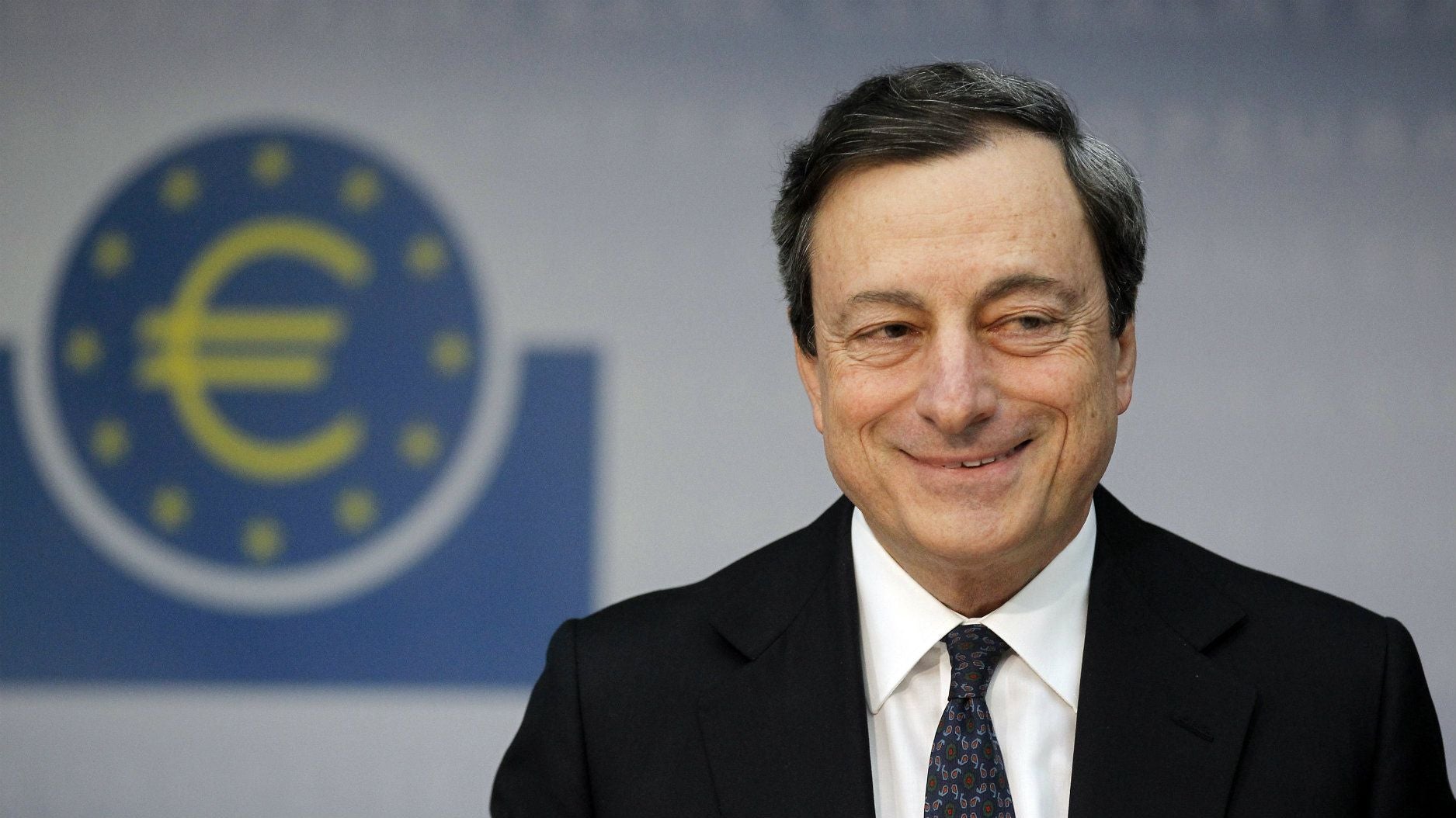Five years ago today, Mario Draghi saved the euro
Exactly five years ago, European Central Bank president Mario Draghi demonstrated the power of words. The euro zone was in the throes of crisis, with bailouts of debt-laden members pushing the currency union to the verge of collapse. But with a simple, seemingly off-the-cuff phrase, Draghi fundamentally changed the course of events: “whatever it takes.”


Exactly five years ago, European Central Bank president Mario Draghi demonstrated the power of words. The euro zone was in the throes of crisis, with bailouts of debt-laden members pushing the currency union to the verge of collapse. But with a simple, seemingly off-the-cuff phrase, Draghi fundamentally changed the course of events: “whatever it takes.”
At a speech in London on July 26, 2012, the ECB president gave an account of the euro-zone economy. Bond yields of weak euro-member governments were soaring, and traders doubted that national, euro- or EU-level institutions could get their act together in time to avert disaster. Draghi sought to convince international investors that the region’s economy wasn’t as bad as it seemed. He then made the momentous remark:
“Within our mandate, the ECB is ready to do whatever it takes to preserve the euro. And believe me, it will be enough.”
(Bizarrely, this historic speech kicks off with Draghi giving a strange analogy of how the euro is like a bumblebee—”it shouldn’t fly but instead it does.” There is something about how bumblebees graduate into “real bees.” No, it still doesn’t make much sense.)
Traders reacted immediately to Draghi’s forthright resolve, and a week after his speech the ECB announced a program to buy the bonds of its distressed countries, known as Outright Monetary Transactions. Although the ECB never ended up using this program, the promise was enough to calm investors and bring down bond yields across the euro zone.
The ECB eventually launched a bona fide bond-buying program in early 2015, but most of the improvement in the euro zone’s weakest members’ borrowing costs was achieved purely by Draghi’s verbal interventions.
Today, traders are as bullish on the euro as they have been in many years, and the IMF just upgraded its forecast for the region’s growth prospects. In the surest sign that the region has turned a corner, Greece returned to the market this week, finding eager investors for €3 billion ($3.5 billion) of government bonds.